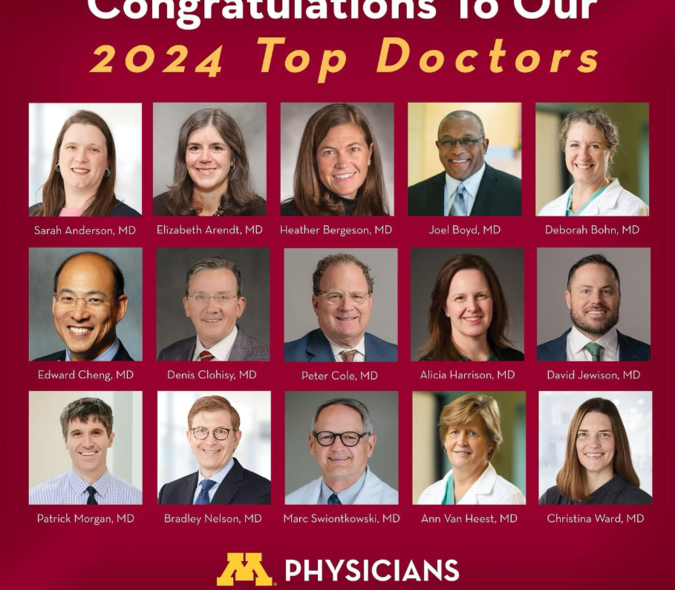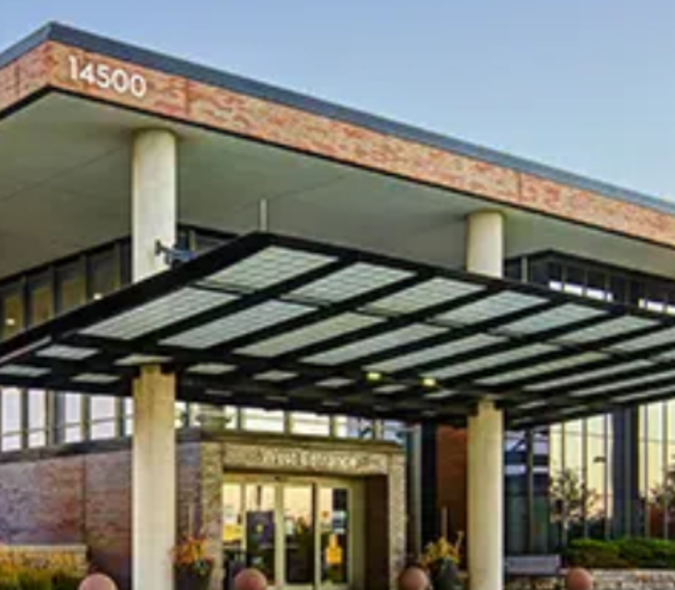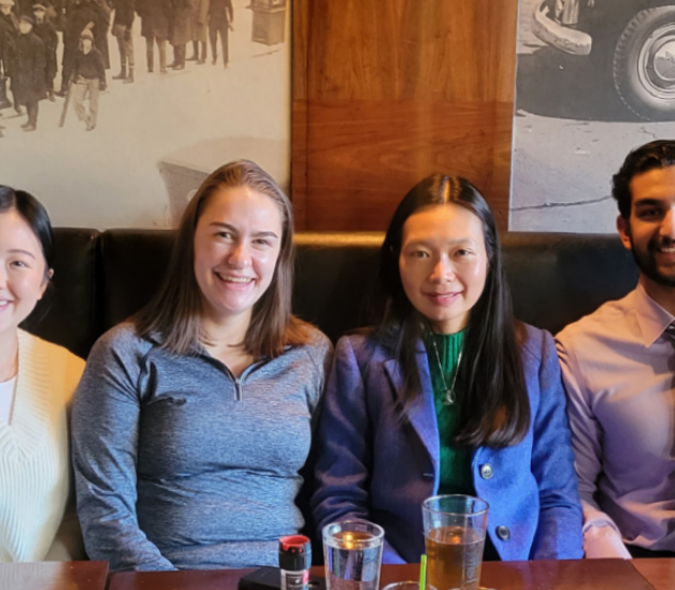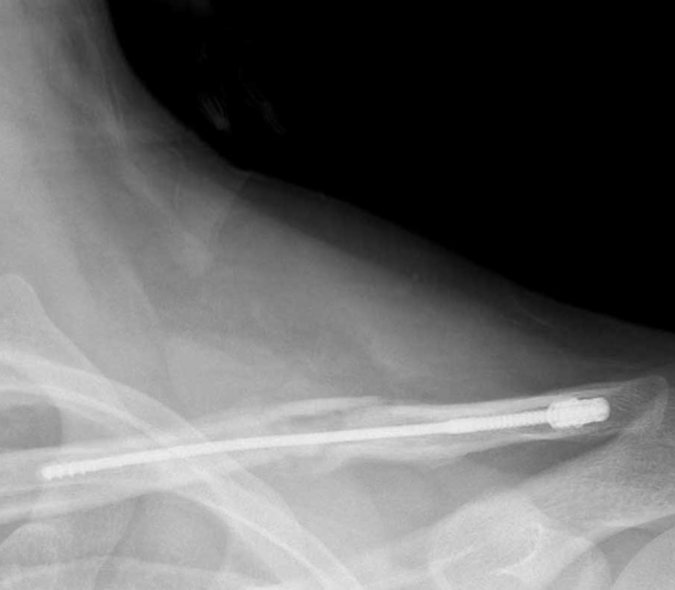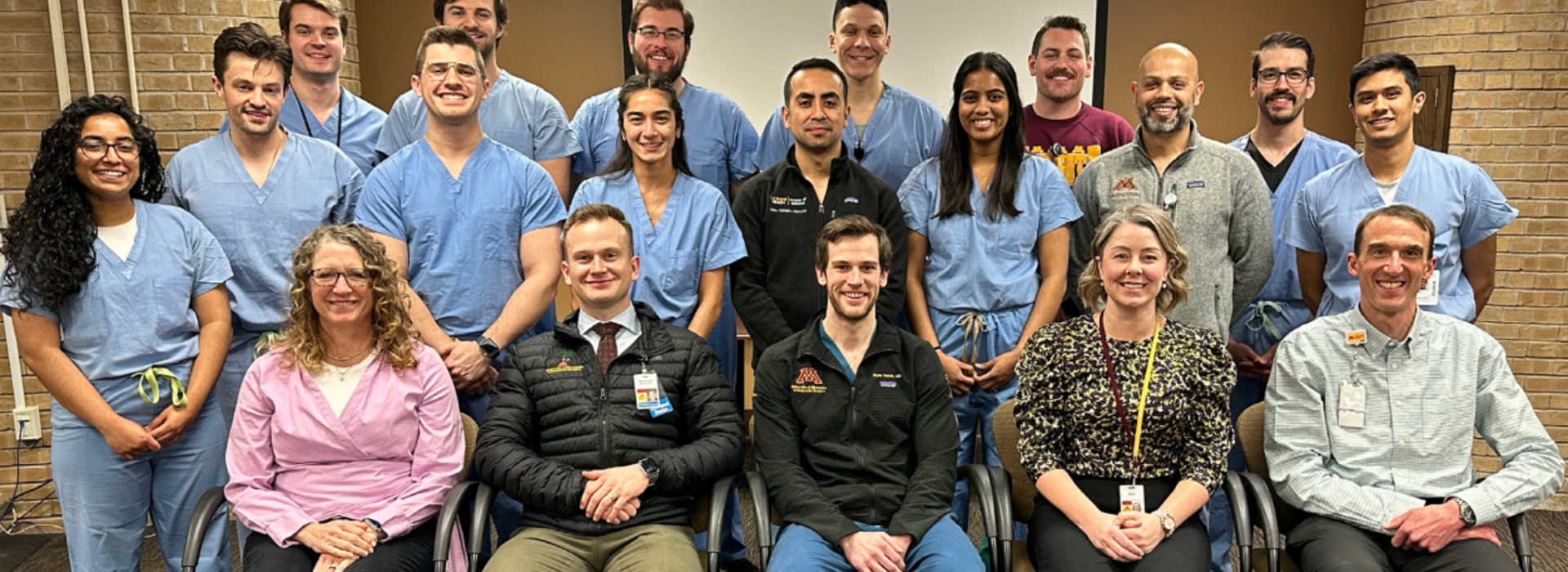
Orthopedic Bootcamp Revolutionizes Medical Education: Students Thrive in Hands-On Learning Experience
IN RECENT YEARS, the University of Minnesota Department of Orthopedic Surgery has launched a pioneering initiative aimed at introducing third-year medical students to the complexities of orthopedics and the musculoskeletal system. Known as Orthopedic Bootcamp, this four-week rotation, thoughtfully crafted by department leaders, seeks to equip students with the essential skills for excelling in their sub-internships and an eventual career in orthopedics.
What is Orthopedic Bootcamp?
Orthopedic Bootcamp aims to instill foundational orthopedic knowledge while providing hands-on experience in surgical and procedural techniques for medical students. Beyond the operating room, the program also emphasizes interprofessional education, fostering collaboration among various healthcare disciplines, and equipping students with the skills needed to effectively manage patients across the continuum of orthopedic care.
At the helm of the program are leaders committed to its success and the department’s educational mission. Dr. Deb Bohn, in her role as Medical Student Clerkship Director, oversees the program’s strategic direction and educational objectives.
Supported by Erin Tuset as the Clerkship Coordinator and Erik Solberg providing administrative guidance, this trio has been instrumental in bringing the program to life.
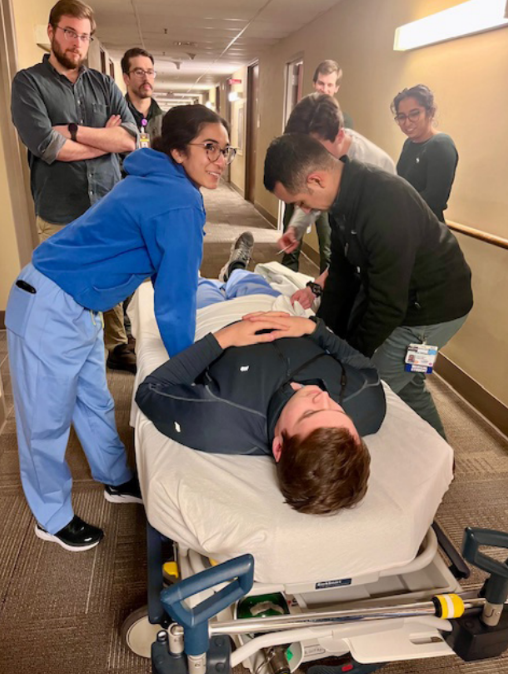
However, it is PGY-4 Alex Vasconcellos that catalyzed the inception of Orthopedic Bootcamp. Drawing from his own experiences as a medical student at the University of Colorado, where he participated in their own version of bootcamp, Vasconcellos proposed the idea to bring a similar program to the University of Minnesota and expand upon Colorado’s program, which, at the time, was primarily resident-led and catered exclusively to fourth-year medical students.
Building upon the foundation laid by Colorado, Vasconcellos and education leadership recognized the opportunity to further refine and tailor Orthopedic Bootcamp, with a key decision to offer it to third-year medical students as an elective rotation, for-credit.
“My hope from the beginning was that Bootcamp could successfully prepare our students for their away/audition rotations so that, no matter their background or prior experience, they could have the skills and knowledge to enter away rotations competently and confidently,” Vasconcellos says.
Vasconcellos emphasizes the program’s significance, noting that in 2024, nearly 600 aspiring orthopedic surgeons were left without a match into a residency program.
“I have no doubt that many of those unmatched students could become successful surgeons. Bootcamp allows students to present the best version of themselves and find a residency program that they want to be a part of that also wants to recruit them.”
From Pilot to Full Fledged Course
The program has grown significantly over the past few years, evolving from initial discussions in late 2021 to a fully-fledged course offering in 2023.
“The first year, we decided to do a pilot run by Alex [Vasconcellos]. It was a two-week long, ‘after-hours’ course just to help medical students improve some of their orthopedic skills,” explains Bohn.
The program’s inaugural pilot course took place in February 2022, serving as a trial run to assess its viability and effectiveness. This initial iteration ultimately laid the groundwork for the program’s expansion. Building upon the pilot experience, Orthopedic Bootcamp transformed into a complete, four-week course offering in 2023, welcoming three enthusiastic students.
In 2024, eleven University of Minnesota students participated in Bootcamp, nearly quadrupling the number of participants from the previous year.
The program also received a pivotal boost in the form of the AAOS IDEA Grant. With this grant, a scholarship was established to support two visiting students from underrepresented groups to join the program.
“One of our charges as leaders at the University is to diversify our profession. If you come from a school that doesn’t have a home program, a DO school, or a family where you’re the first to earn a graduate degree, you may need additional support to successfully match,” Bohn states.
This scholarship provides additional resources and opportunities for students who may face unique challenges in their pursuit of a career in orthopedic surgery. Bohn further highlights the significance of such support, noting that it can help “level the playing field” and ensure that all aspiring orthopedic surgeons have access to preparatory opportunities to help them succeed.
A Collaborative Spirit
The resounding success of the program stands as a testament to the commitment and collaborative spirit exhibited by the department as a whole.
For the latest round of Orthopedic Bootcamp, virtually all department sites, including UMMC, TRIA, Gillette, Regions, and Hennepin County Medical Center, played vital roles in shaping the educational experience of these students. Whether through immersive simulation labs, shadowing opportunities, or other forms of engagement, these sites collectively contributed to the comprehensive training received by participants.
More than 25 faculty members served as lecturers, while 14 faculty members graciously allowed students to shadow them in clinical settings or the OR, providing that invaluable hands-on learning experience.
The program has also benefited from the support and guidance of roughly 30 of our residents, who played diverse roles ranging from mentoring students during on-call shifts to actively participating in case presentations. Beyond the leadership of individuals like Alex Vasconcellos, the program thrived thanks to the contributions of key residents Nick Reiners and Ryan Hatch, who served as
Assistant Resident Faculty.
In addition to department staff, residents, and faculty, former Bootcamp participants and recently matched MS4 students, such as Brad Fossum, Nick Bostrom, Chris Seaver, and Sydney Boike eagerly returned to offer their support to the program.
Clerkship Coordinator Erin Tuset notes that many former Bootcamp participants have embraced the opportunity to give back, now serving as mentors for current participants.
“My hope is that when our participants graduate and become faculty, they’d want to come back and speak at Bootcamp, or maybe this will inspire them to create something within their respective programs as they spread across the country,” envisions Tuset.
Student Feedback
Past participants of the Orthopedic Bootcamp program have expressed their satisfaction and gratitude for the experience. One student stated, “I feel so much more prepared for away rotations and my ability to perform well.”
Another described it as “the best part of medical school so far.” Several students also emphasized the boost in their confidence and practical skills, particularly with handling drills and putting on splits.
The vast majority of student participants have felt that the program effectively prepared them for hospital and clinic settings, with one concluding, “We were set up to be effective in the hospitals and clinics. I am in a situation to carry myself more confidently.”
This confidence is palpable not only in the students’ internal perceptions but also in tangible metrics, exemplified by a comparison of pre-and post-program test scores.
Across metrics such as cast removal times, number of cuts during cast removal, traction pin placements, quantity of sutures placed, and quality of sutures, there was a notable and dramatic improvement in scores from the first day of the program to the very last.
Collectively, these insights illustrate the heightened competency achieved by students as they progress through the program, ultimately affirming its efficacy in equipping medical students with the practical skills and confidence necessary for their future clinical endeavors.
What's Next for Orthopedic Bootcamp?
As Bohn and team reflect on Orthopedic Bootcamp thus far, one thing becomes abundantly clear: the program’s success lies in the collective efforts of the department members who have rallied together to support and uplift the next generation of orthopedic surgeons.
The program’s future is brimming with opportunity, as Bohn expresses aspirations to expand opportunities for additional underrepresented visiting students to join the program and provide more opportunities within the program to enhance key skills.
When summing up the experience of Bootcamp as a whole, Bohn simply says she’s “proud.”
Indeed, it is a privilege to be a part of a department/program that places such a profound value on medical student education. Given the scarcity of courses like Orthopedic Bootcamp across the nation, there’s hope that its reputation will spread, prompting more programs to spotlight orthopedics and offer students a chance to familiarize themselves with the subspecialty prior to their sub-internships.
Until then, Orthopedic Bootcamp will continue to serve as an example of the Department of Orthopedic Surgery’s dedication to proactively providing resources to medical students and sustaining an inclusive environment where individuals from all backgrounds have the opportunity to prepare and excel in the field of orthopedic surgery.
